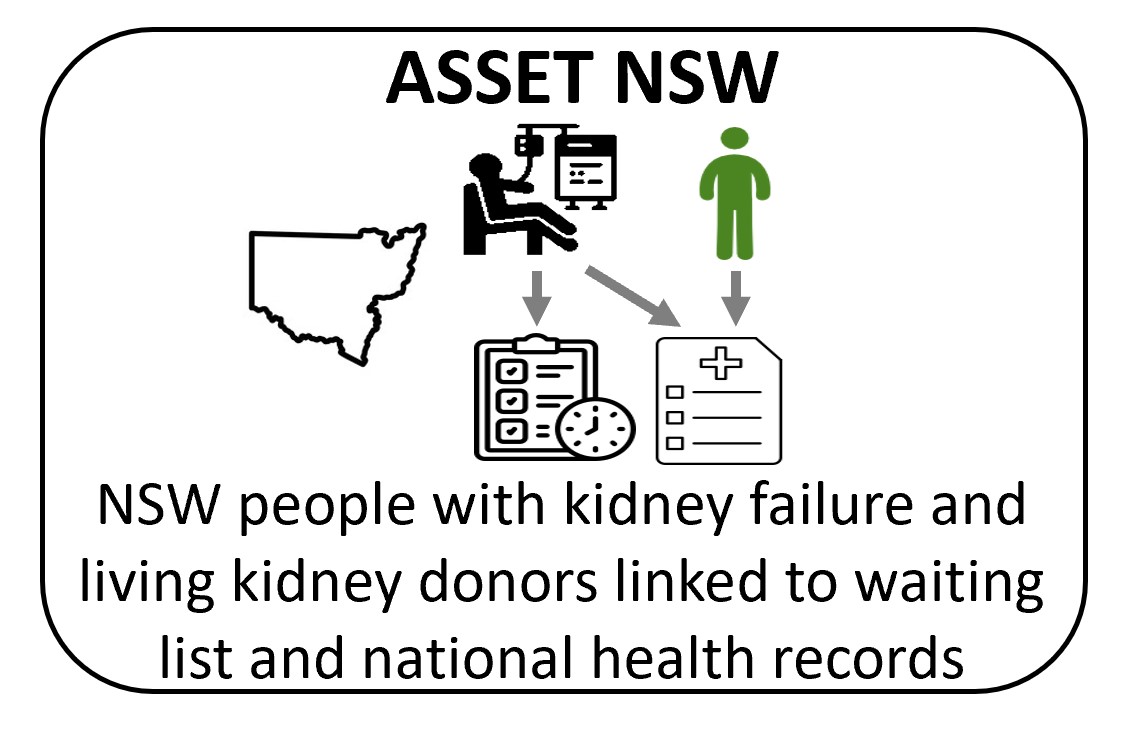ASSET NSW – AcceSS and Equity to Transplantation New South Wales

The Mental Health Living Longer (MHLL) programme established a population-wide data linkage to support research translation and service reform for mental health in New South Wales (NSW), Australia (learn more about it here: Mental Health Living Longer (MHLL) protocol). In partnership with the MHLL programme, based at NSW health, we have developed a program of work investigating the intersection of mental health and kidney disease. We know people with serious mental illness suffer greater burden of other chronic diseases too, and also don’t live as long on average as people without mental illness. Little is currently known about what this means for people with mental illness and kidney disease. We suspect that people with severe and persistent mental illness may be disadvantaged in accessing transplantation – and may have poorer post-transplant outcomes. Understanding their trajectory and experience of accessing transplantation is important in determining where inequities exist in healthcare organisation and delivery, and where improvements can be made to support this population.
Using data-linkage and a systems-based approach the study aims to describe how people with severe and persistent mental illness and kidney failure experience kidney transplant health services compared to those with kidney failure but without mental illness. This work will expose the unmet needs of a highly disadvantaged group to drive system-based change to improve health outcomes.
New research from the Collaborative Centre for Organ Donation Evidence, Sydney School of Public Health, in collaboration NSW Health has shown that ANZDATA underestimated the number of Aboriginal and Torres Strait Islander people with kidney failure in NSW by approximately one-third compared to other NSW health data sources. Aboriginal and Torres Strait Islander people not recognised by ANZDATA were more likely to live in cities, be younger or older, but most importantly they had better health outcomes – they tended to get more kidney transplants and live longer than those identified in ANZDATA. The findings suggest that not all clinical services are asking the national standard question “are you of Aboriginal or Torres Strait Islander origin?” If we want better Aboriginal health, then we need to record data well and know who needs what and where. What this research shows us is that we can be more accurate when we look across multiple data sources, and don’t just rely on single sources.
This research has been discussed on Koori radio Blackchat, and in The Limbic https://thelimbic.com/nephrology/effort-required-to-improve-reporting-of-indigenous-status/
Research Publications
2025
In: Med J Aust , vol. 222, iss. 5, pp. 240-248, 2025.